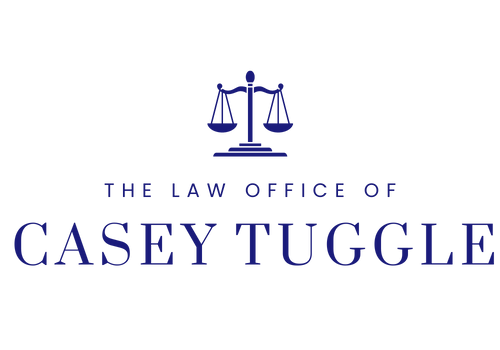Ten Things I’ve Learned My First Month at CT Law
1. Legitimate/Legitimize your child: On my first day with the firm, I was shocked to learn that an unwed, biological father has no legal rights to his child unless the child is legiti(mated?) through a subsequent marriage to the mother or formal legitimation proceedings. Considering how important it is, it is shocking how little is done to make people aware of the possible consequences of not doing so. I’ve yet to figure out what the correct verb form is, though. Maybe during month two?
2. Flat Fees should be the standard: Before starting at CT Law, I thought that all firms had to bill hourly. CT Law, however, contracts for each legal service it provides, but only when that service is actually needed. This was refreshing, as far too often, attorneys are incentivized to prolong cases to their own monetary benefit rather than what would actually benefit their clients. Casey’s style of billing, in my opinion, should be the norm.
3. Find ways to process the dark: It’s rare for people to seek counsel for positive reasons, but family law can get dark quickly due to its emotional nature. Whether it’s familial abuse, custody concerns, etc., in helping clients navigate those challenges, everyone at CT Law takes on a bit of those dark emotions to lift what we can off our clients’ shoulders. I’ve found that going for a run, cooking a new recipe with my boyfriend, or even taking a few minutes to just breathe has allowed me to focus that darkness into motivation to do my part to ensure our clients are able to move on to a greater chapter.
4. Not everyone should be a parent: It’s natural for people to “just have” kids, as it’s unfortunately a litmus test of a successful life in society to this day. This causes people to sometimes have them out of pressure, rather than their own true desire, which can lead to situations where the child is not receiving the care and/or love it deserves. Sometimes surrendering parental rights can be what’s best for both the parent and the child, despite the negative connotation it may have.
5. Know the Clerk: The Clerk of Court can be an attorney’s best friend or worst enemy. The clerk oversees scheduling, filing any documents, and an attorney’s accessibility to the judge. Understanding the “clerk’s quirks” of a county, like preferences in formatting or what documents they may require, will make one’s life much easier and a case move much more efficiently.
6. Focus on the issue, not the noise: It can be difficult to figure out the pertinent issues of a case when there’s so much information being given. My first week, I got caught in the weeds when attending consultations, but now I’ve found myself able to follow where Casey’s brain is going (although much slower than her) when trying to figure out what issues matter in a potential new case. Identifying a client’s goal and determining what routes are available to get there will drown out the noise and help identify the dispositive facts.
7. Mediation: Coined “The Great State of Chatham” for its specific rules compared to other counties in Georgia, Chatham County has a mediation requirement before any contested divorce is allowed to proceed. This can be frustrating, as it can be seen as lengthening the time it takes for the ultimate result to be reached, but a successful mediation tends to be much more time and cost effective in the end than proceeding to trial. Mediation allows for parties to effectively negotiate in real time, extending offers to be relayed back and forth by the mediator. If parties enter a mediation open-minded, and negotiate in good faith, odds are they can have their final agreement in hours instead of months later after one or two days of an emotionally charged trial.
8. Pick your battles: I tend to be pretty reactive to situations, both good and bad. What Casey’s taught me is that even when something isn’t what you expect, want, or find correct, sometimes acceptance is far more effective than standing your ground. Whether it’s been from opposing counsel, a judge, or a party, Casey has taught me that letting things roll off the shoulder, even when they warrant a not-so-kind response, is usually the best route forward. The favorability of your argument will only be helped by the unprofessionalism of those trying to refute it. However, a sprinkle of sass can have its moments.
9. Is there a “loser?”: Before my time at CT Law, I thought every case, no matter the type, had a winning and a losing party. It turns out that family law tends to depart from that black and white idea of winning a case and instead settles in on what result is equitable. An easy example of this is when both parents request full physical custody, but they end up receiving 50/50. Neither party got their exact wish, but neither “lost” because they have an equitable amount of time with their child. Family courts in Georgia are focused on making sure both parties are set up for success after the case is over, rather than completely siding with one party because they were a tad bit more convincing.
10. CT Law Runs on: If America runs on Dunkin’, CT Law runs on Starbucks and Chick-Fil-A breakfast.

